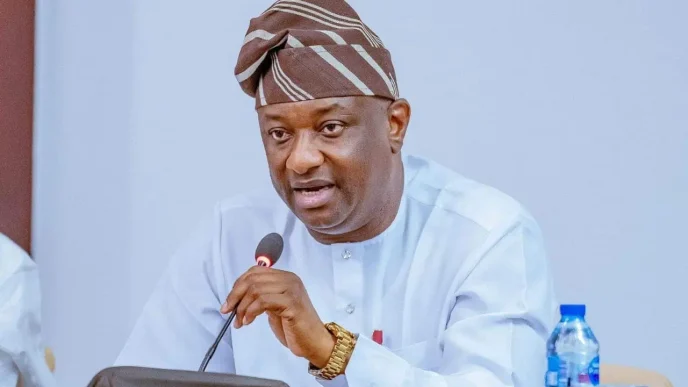The ministry of finance has provided clarification on President Bola Tinubu’s $21.5 billion borrowing request, saying it would not lead to an “automatic” debt increase.
On May 27, Tinubu wrote to the national assembly requesting approval for a new external borrowing plan totalling over $21.5 billion.
The president also sought the lawmakers’ green light to issue federal government bonds worth N757.9 billion to settle outstanding pension liabilities under the contributory pension scheme (CPS).
Speaking in a statement on Tuesday, Mohammed Manga, director of information and public relations at the ministry of finance, said the request aims to introduce a forward-looking and structured approach to debt management, replacing the inefficiencies of reactive borrowing.
Advertisement
“The Debt Rolling Plan is not an automatic green light for increasing the debt burden. It is a strategic framework that guides sustainable and purposeful borrowing,” the statement reads.
“This strategic method enhances Nigeria’s ability to implement effective fiscal policies and mobilize development resources.
“Importantly, it should be noted that the debt rolling plan does not equate to an automatic increase in the nation’s debt burden.”
Advertisement
According to the ministry, most of the proposed loans will be sourced from development partners such as the World Bank, African Development Bank, China EximBank, JICA, the French Development Agency, European Investment Bank, and the Islamic Development Bank.
“These institutions provide concessional financing with favorable terms and long repayment periods, which aligns with the country’s development needs,” the statement added.
Manga said the plan is designed to support critical investments in infrastructure, transportation, energy, and agriculture — “sectors central to achieving rapid, inclusive, and sustained economic growth”.
“Our borrowing strategy is guided not by the volume of loans but by their utility, sustainability, and the economic value they generate. Each facility will be strictly tied to growth-enhancing projects,” the ministry said.
Advertisement
The ministry also reiterated its commitment to maintaining borrowing within sustainable limits, bolstered by ongoing tax reforms and efforts to boost domestic revenue.
“We are committed to fiscal discipline, transparency, and accountability. Legislative oversight and public engagement are key to building long-term economic stability and inclusive national prosperity,” the statement added.
Manga also said the ongoing tax reform agenda and other revenue initiatives will further improve revenue generation and financial management.
Advertisement












